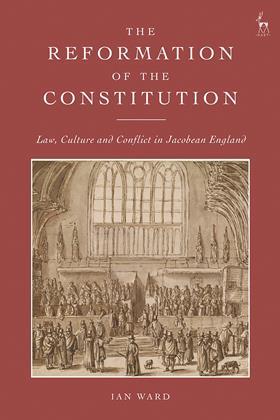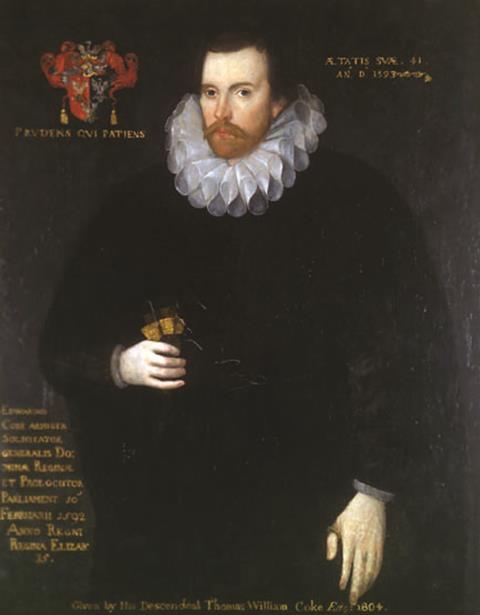The Reformation of the Constitution: Law, Culture and Conflict in Jacobean England
Ian Ward
£85, Bloomsbury
★★★★✩
In Alan Bennett’s 2004 play The History Boys – following the lives of several students preparing for the Oxbridge entrance exams – one character defines history as ‘just one f*****g thing after another’. Pithy, certainly, and not wholly untrue. Often, the historian’s role is to identify which of those things are most significant, and in viewing them from the vantage point of the present day, identify the reasons behind the events and their subsequent impacts.

Ian Ward picks as his subject the 1616 decision of the Court of Exchequer in the Case of Commendams and its subsequent fallout.
Commendams, a challenge to the use of a prerogative writ allowing the King to transfer ecclesiastical benefices, brought to a head a conflict between two different views of the law and the state. The first, the absolutism of King James I, who saw the King as akin to a Roman imperator, appointed by God and possessing any legal power he chose to exercise, a view given intellectual force by his polymathic attorney general Sir Francis Bacon. The second, the constitutionalism of Lord Chief Justice Edward Coke, who considered the King subject to the law, and looked back to the ‘ancient rights and customs’ of a quasi-mythical common law that guaranteed individual freedoms – especially Chapter 29 of Magna Carta, from which he found a wide right to due process and protection from arbitrary government.
In Commendams, the judges of the King’s Bench, led by Coke, found the King’s use of the prerogative unlawful. The King and attorney general demanded that the case be halted until the King had been consulted on the law. After increasingly ill-tempered correspondence, the judges were summoned before the King for a dressing down. Eventually, all the judges backed down. Coke – who had, over the previous decade, been the moving spirit in several key cases in which the courts pushed back against the King’s use of prerogative powers – refused, saying that he would ‘do what is right for a judge to do’. His stubborn and principled stand ultimately led to his dismissal from office.

Ward argues that Commendams, and Coke’s refusal to back down, fundamentally shaped the UK’s constitution over the next four centuries. Freed from his loyalty to the Crown – and now possessing a martyr’s palm – Coke turned his considerable intellectual powers to advocating for his version of common law and limited monarchy. His writings, particularly Volume II of his Institutes, provided an intellectual underpinning for the arguments advanced by parliament against James I’s increasingly authoritarian successor, Charles I. As an MP, Coke composed the 1628 Petition of Right, in which parliament asserted its own rights and insisted the King could only levy taxes with Parliament’s consent; the Petition itself inspired England’s Bill of Rights of 1688, and the United States’ own Bill of Rights a century later.
The radical leader of the Leveller movement, John Lilburne, charged with treason by the Interregnum government after the Civil War, arrived at court to defend himself armed with a copy of the Institutes. Parliament’s victory in the civil war and overthrowing of James II in the Glorious Revolution later in the century saw Coke’s constitutional views established as orthodoxy not only in England, but also, crucially, in the rapidly growing North American colonies. Ward finishes by considering the ongoing influence of Coke’s views on the limited powers of government and the rule of law; views cited prominently in the Miller Brexit cases and various 2000 terrorist detention cases, among others.
The work is immensely readable. The focus on one event, using it as a lens for wider analysis, is effective, and Ward’s regular attempts to tie the events of 1616 into modern events – references to Brexit, Partygate and the travails of the 2019 to 2024 Conservative government abound – work well.
James E Hurford is a solicitor at the Government Legal Department, London































No comments yet